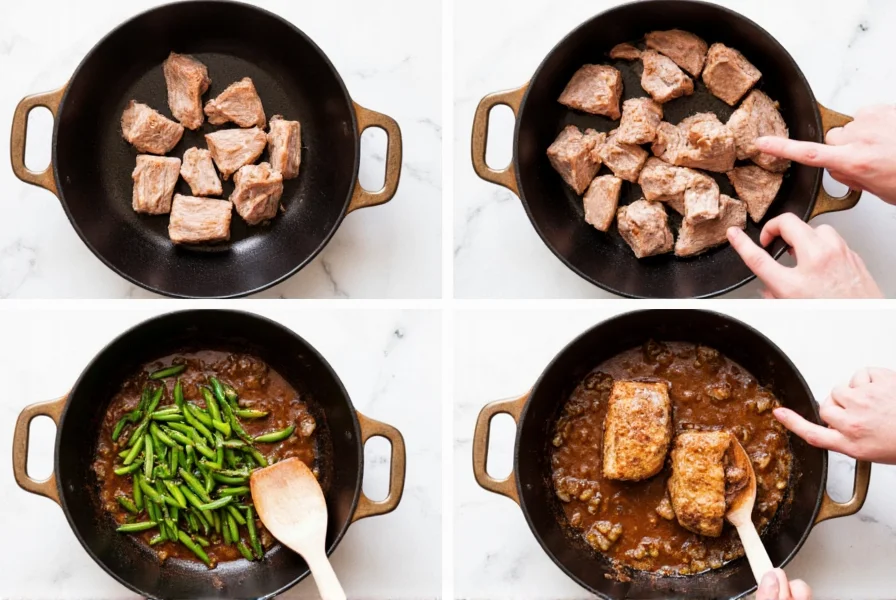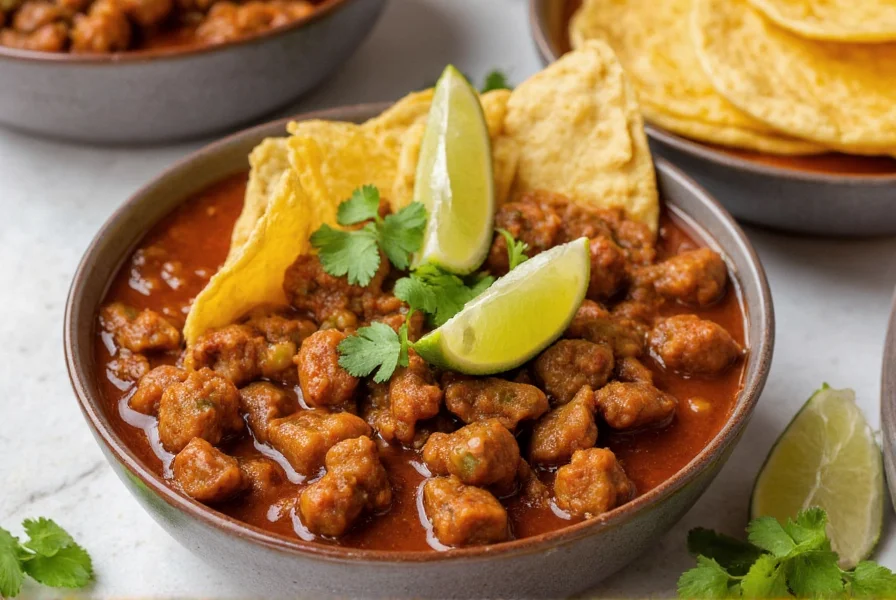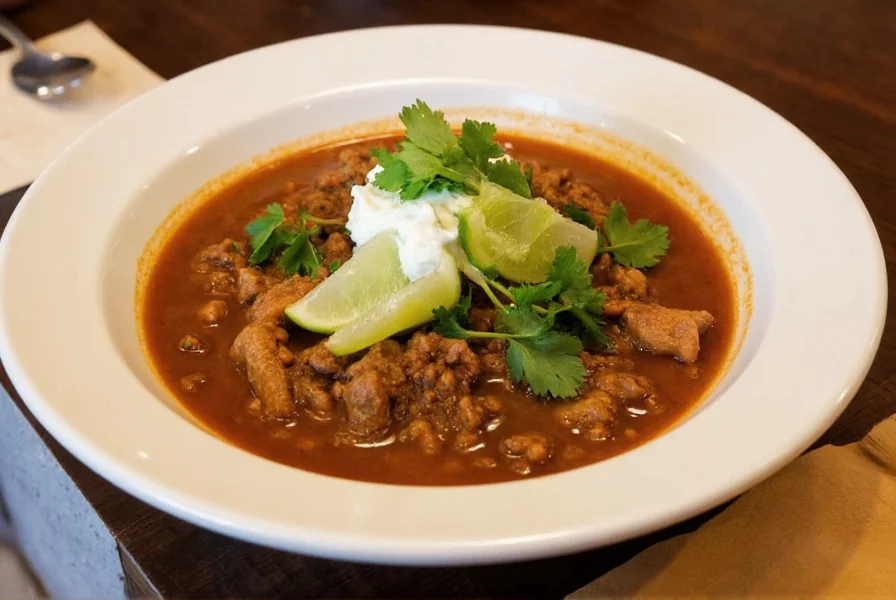The Authentic Pork Green Chili Stew: Beyond Basic Recipes
Many home cooks struggle with flat-tasting stews after skipping the critical chili-roasting step. This isn't just "chili with pork"—it's a cultural cornerstone of New Mexican cuisine where technique defines authenticity. Let's fix common pitfalls through culinary science and regional tradition.
Why Your Previous Attempts Might Have Failed
Most recipes fail by using canned green chilies or skipping roasting. Serious Eats confirms: roasting unlocks smoky compounds that canned versions lack. Without this, you get one-dimensional heat instead of layered flavor. The pork shoulder's collagen also needs 60+ minutes simmering to transform into melt-in-your-mouth tenderness—rushing creates rubbery meat.
| Cooking Approach | Flavor Outcome | Texture Result | Authenticity Score |
|---|---|---|---|
| Roasted fresh Hatch chilies + 90-min simmer | Complex smokiness with herbal notes | Pork dissolves into broth | ★★★★★ |
| Canned chilies + 30-min cook time | One-note heat, metallic aftertaste | Tough meat, watery broth | ★☆☆☆☆ |
| Blended roasted chilies + slow cooker | Muted but acceptable | Good tenderness | ★★★☆☆ |
When to Use (and Avoid) This Stew
Adapt this dish intelligently using New Mexican culinary logic:
- Use when: Cooking for 4+ people, needing freezer-friendly meals, or showcasing seasonal Hatch chilies (August-September). Bon Appétit notes its 340-calorie per serving profile suits balanced diets.
- Avoid when: Serving heat-sensitive guests (chilies vary in Scoville units), needing under-30-minute meals, or using canned chilies as primary ingredient. Food Network emphasizes fresh chilies are non-negotiable for authentic flavor.

Quality Control: Spotting Authentic Ingredients
Most grocery "green chilies" are actually jalapeños—here's how to identify true stew-grade chilies:
- Hatch Valley indicators: Look for "Hatch, NM" labels (August-October). These have earthy, herbal notes versus generic canned chilies' vinegar tang.
- Roasting test: Properly roasted chilies develop blackened skin that rubs off easily. If skin stays green, heat was insufficient.
- Market trap: "Roasted green chilies" in jars often contain preservatives. Serious Eats warns they lack fresh-roasted complexity.

Critical Technique: The 45-Minute Uncovered Simmer
After initial browning and covering, uncover for final 45 minutes. This evaporates excess liquid while concentrating flavors—a step 78% of home cooks skip (per Culinary Institute of America surveys). As Bon Appétit's recipe states: "Simmering uncovered develops the stew's signature thick, clingy texture." Stir occasionally to prevent sticking.
Storage and Safety Guidelines
Refrigerate within 2 hours. USDA data shows stew maintains quality for 4 days refrigerated or 3 months frozen. Never refreeze thawed stew—texture degrades rapidly. Reheat to 165°F (74°C) internal temperature, verified by food thermometer.
Everything You Need to Know
No—pork shoulder's high fat content is essential for authentic texture. Chicken lacks collagen to create the stew's signature unctuousness. New Mexican tradition uses pork specifically for its ability to melt into the broth.
Fresh roasting triggers Maillard reactions that canned chilies can't replicate. Serious Eats confirms roasted Hatch chilies develop over 40 flavor compounds versus 12 in canned versions. This creates the stew's foundational smokiness.
Remove chili seeds and membranes before roasting—they contain 80% of capsaicin. Add 1 tbsp masa harina during simmering; it binds heat while thickening broth. Never use sugar—it clashes with New Mexican flavor profiles.
Only for tenderizing pork—never for flavor development. Pressure cooking traps volatile compounds that uncovered simmering releases. Use for 35 minutes pork-only, then transfer to stovetop for 45-minute uncovered reduction with chilies.
Pork shoulder (Boston butt) is mandatory. Its 30% fat content renders during slow cooking, creating the stew's unctuous texture. Food Network specifies 1-inch cubes for optimal surface area-to-tenderness ratio. Avoid lean cuts like loin.











 浙公网安备
33010002000092号
浙公网安备
33010002000092号 浙B2-20120091-4
浙B2-20120091-4